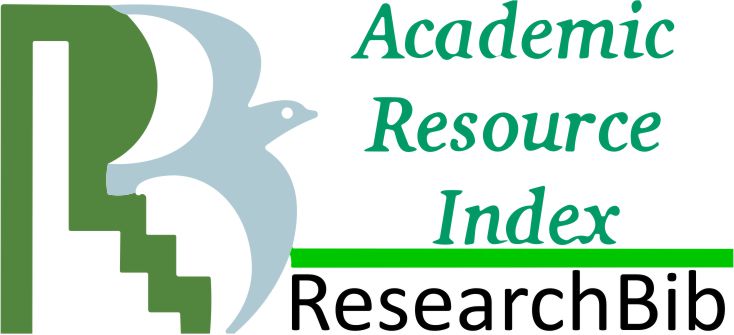DOI
10.21002/jaki.2022.02
Abstract
The development of artificial intelligence (AI) in accounting as the impact of industrial revolution 4.0 has raised various concerns regarding the future of accountants and the possibility that accountants will be replaced by AI. Businesses are continuously adopting AI globally and particularly in Indonesia, AI adoption raises concerns that accountants will be replaced with AI due to the lack of competence to work with AI. A descriptive study with a quantitative approach was conducted in January 2021 by distributing questionnaires that collected a convenience sample of 476 respondents from universities across Indonesia. The required criteria of respondents are the active Indonesian undergraduate accounting students (class of 2016-2020). Therefore, this research will examine how the AI-based curriculum provided by universities relates to the competency of prospective accountants. The research also examines how the prospective accountants’ competency affects the readiness of accounting students to adapt and work with AI so that their roles are not entirely replaced by AI, especially for Indonesian accounting students as prospective accountants. The last part of this research will underline that the development of AI therefore should not be a concern for the future of accountants and accounting students in Indonesia. However, to have the prospective accountants prepared to work with AI and enter the industry 4.0 workforce after they graduate, the accounting students need to enhance their competencies. The accounting educators also need to enhance their curricula by providing more practice-related courses to improve the capability of accounting students to operate accounting softwares.
Bahasa Abstract
Perkembangan kecerdasan buatan (AI) di bidang akuntansi sebagai dampak dari revolusi industri 4.0 telah menimbulkan berbagai kekhawatiran mengenai masa depan akuntan dan kemungkinan bahwa akuntan akan tergantikan oleh AI. Dengan banyaknya bisnis yang terus mengadopsi AI, baik secara global maupun khususnya di Indonesia, pengadopsian AI ini menimbulkan kekhawatiran bahwa peran akuntan akan digantikan oleh AI karena kurangnya kompetensi akuntan untuk dapat bekerja dengan AI. Studi deskriptif dengan pendekatan kuantitatif dilakukan pada Januari 2021 dengan menyebarkan kuesioner yang mengumpulkan sampel sebanyak 476 responden dari universitas di seluruh Indonesia. Kriteria responden yang dibutuhkan adalah mahasiswa S1 akuntansi Indonesia yang sedang aktif (tahun angkatan 2016-2020). Oleh karena itu, penelitian ini akan mengkaji bagaimana kurikulum berbasis AI yang diberikan oleh perguruan tinggi terkait dengan kompetensi calon akuntan. Penelitian ini juga mengkaji bagaimana kompetensi calon akuntan memengaruhi kesiapan mahasiswa akuntansi untuk beradaptasi dan bekerja dengan AI sehingga perannya tidak sepenuhnya tergantikan oleh AI, khususnya bagi mahasiswa akuntansi Indonesia sebagai calon akuntan. Akhir dari penelitian ini akan menggarisbawahi bahwa perkembangan AI oleh karena itu tidak boleh menjadi perhatian bagi masa depan akuntan dan mahasiswa akuntansi di Indonesia. Namun, agar para calon akuntan lebih siap bekerja dengan AI dan memasuki dunia kerja industri 4.0 setelah mereka lulus, mahasiswa akuntansi masih perlu meningkatkan kompetensinya. Oleh karena itu, para pendidik akuntansi juga perlu meningkatkan kurikulum mereka dengan menyediakan lebih banyak kursus terkait praktik untuk meningkatkan kemampuan mahasiswa akuntansi dalam mengoperasikan perangkat lunak akuntansi.
References
Ajzen, I. 1991. The Theory of Planned Behavior. Organizational Behavior and Human Decision Processes, 50, 179–211.
Awayiga, J. Y., J. M. Onumah, and M. Tsamenyi. 2010. Knowledge and skills development of accounting graduates: The perceptions of graduates and employers in Ghana. Accounting Education, 19(1–2), 139–158.
Bisnis. 2018. Riset IDC: Sekitar 51% Perusahaan Berminat Adopsi Teknologi Kecerdasan Buatan. [Web page]. Access from https://m.bisnis.com/amp/read/20181205/105/866646/riset-idc-sekitar-51-perusahaan-berminat-adopsi-teknoogi-kecerdasan-buatan
Bosnia, T., and C. Indonesia. 2018. Teknologi Digital Berpotensi Timbulkan 5,1 Juta Pengangguran. Halaman web]. Diakses dari https://www.cnbcindonesia.com/tech/20180205202513-37-3596/teknologi-digital-berpotensi-timbulkan-51-juta-pengangguran
Chaouali, W., N. Souiden, and R. Ladhari. 2017. Explaining adoption of mobile banking with the theory of trying, general self-confidence, and cynicism. Journal of Retailing and Consumer Services, 35, 57–67.
Chen, J., D. Damtew, J.M. Banatte, and J. Mapp. 2009. Information Technology Competencies Expected in Under-graduate Accounting Graduates. Research In Higher Education Journal, 3, 1–7.
Damerji, H. 2019. Technology Readiness Impact on Artificial Intelligence Technology Adoption By Accounting Students, University of La Verne. ProQuest Dissertations and Theses, November.
Damerji, H., and A. Salimi. 2021. Mediating effect of use perceptions on technology readiness and adoption of artificial intelligence in accounting. Accounting Education, 30(2), 107–130.
DDTCnews, R. 2019. Masuk ke Era 4.0, Akuntan akan Ketinggalan Zaman? [Web page]. Access from https://news.ddtc.co.id/masuk-ke-era-40-akuntan-akan-ketinggalan-zaman-16668?page_y=0
Frey, C. B., and M. A Osborne. 2017. The future of employment: How susceptible are jobs to computeri-sation? Technological Forecasting and Social Change, 114, 254–280.
Ghufron, M. A. 2018. Revolusi industri 4.0: tantangan, peluang dan solusi bagi dunia pendidikan. 332–337.
Greenman, C. 2017. Exploring the Impact of Artificial Intelligence on the Accounting Profession. Journal of Research in Business, Economics and Management, 8 (3), 1451–1454.
Güney, A. 2014. Role of Technology in Accounting and E-accounting. Procedia - Social and Behavioral Sciences, 152, 852–855.
Handoko, B. L., A. N. Mulyawan, J. Samuel, and K. K. Rianty. 2019. Facing Industry Revolution 4. 0 for Millennial Accountants. 1, 1037–1042
IAESB. 2018. Information and Communi-cations Technology Literature Review. February.
Kavanagh, M. H., and L. Drennan. 2008. What skills and attributes does an accounting graduate need? Evidence from student perceptions and employer expectations. Accounting & Finance, 48(2), 279–300.
Khanh, L. T. 2018. Proceedings of the 5th International Conference on Finance and Economics 2018. In Proceedings of The 5th International Conference on Finance and Economics 2018.
Kompas. 2019. Tantangan Penerapan Artificial Intelligence di Indonesia. [Web page]. Access from https://amp.kompas.com/tekno/read/2019/03/12/18300787/tantangan-penerapan-artificial-intelligence-di-indonesia
Li, Z., and L. Zheng. 2018. The impact of artificial intelligence on retraining. Advances in Social Science, Education and Humanities Research (ASSEHR), 181(Icsshe), 469–476.
Microsoft. 2019. Adopsi Artificial Intelligence di Indonesia: Pengembangan Talenta Masa Depan. [Web page]. Access from https://news.microsoft.com/id-id/2019/03/12/adopsi-artificial-intelligence-di-indonesia-pengembangan-talenta-masa-depan/
Pan, G., and P. S. Seow. 2016. Preparing accounting graduates for digital revolution: A critical review of information technology competencies and skills development. Journal of Education for Business, 91(3), 166–175.
Romney, M. B., and P. J. Steinbart. 2015. Accounting information systems (13th ed.). Pearson Education, Inc.
Sekaran, U., and R. Bougie. 2016. Research Methods for Business: a skill-building approach (7th ed.). John Wiley & Sons.
Singh, G., A. Mishra, and D. Sagar. 2013. An Overview of Artificial Intelligence in Education. Encyclopedia of Information Science and Technology, Third Edition, 1, 2445–2452.
Sledgianowski, D., M. Gomaa, and C. Tan. 2017. Toward integration of Big Data, technology and information systems competencies into the accounting curriculum. Journal of Accounting Education, 38, 81–93.
Stancheva-Todorova, E. P. 2018. How Artificial Intelligence is Challenging Accounting Profession. Journal of International Scientific Publications, 12, 126–141.
Stancheva-Todorova, E. P. 2019. Are Accounting Educators Ready to Embrace the Challenges of Industry 4.0. International Scientific Journal “Industry 4.0,”4(6), 309–312.
Stancheva-Todorova, E. P. 2019a. the Knowledge and Skills Profile of Accountant 4.0. Horizons, 79–97.
TheJakartaPost. 2018. Industry 4.0 career guide: How to avoid being replaced by robots. [Web page]. Access from https://www.thejakartapost.com/amp/life/2018/05/21/industry-4-0-career-guide-how-to-svid-being-replaced-by-robots-1526880346.html
TheManifest. 2018. 16 Examples of Artificial Intelligence (AI) in Your Everyday Life. https://medium.com/@the_manifest/16-examples-of-artificial-intelligence-ai-in-your-everyday-life-655b2e6a49de
Warta Ekonomi. 2019a. Adopsi AI di Indonesia Masih Minim, Kenapa? [Web page]. Access from https://amp.wartaekonomi.co.id/berita219236/adopsi-ai-di-indonesia-masih-minim-kenapa
Warta Ekonomi. (2019b). Masa Depan Akuntansi : Batasan Baru Teknologi dan Keamanan Siber. [Web page]. Access from https://www.wartaekonomi.co.id/read217566/masa-depan-akuntansi-batasan-baru-teknologi-dan-keamanan-siber
Wessels, P. L. 2005. Critical information and communication technology (ICT) skills for professional accountants. Meditari Accountancy Research, 13(1), 87–103.
Yang, Y., J. N. Choi, and K. Lee. 2018. Theory of Planned Behavior and Different Forms of Organizational Change Behavior. Social Behavior and Personality: An International Journal, 46 (10), 1657–1671.
Yoon, S. (2020). A study on the transformation of accounting based on new technologies: Evidence from Korea. Sustainability (Switzerland), 12(20), 1–23.
Recommended Citation
Andani, Gina; Lindrianasari, Lindrianasari; Oktavia, Reni; and Septiyanti, Ratna
(2022)
"INDONESIAN ACCOUNTING STUDENTS’ SELF-CONFIDENCE TO ADOPT ARTIFICIAL INTELLIGENCE (AI),"
Jurnal Akuntansi dan Keuangan Indonesia: Vol. 19:
No.
1, Article 2.
DOI: 10.21002/jaki.2022.02
Available at:
https://scholarhub.ui.ac.id/jaki/vol19/iss1/2
Included in
Accounting Commons, Business Intelligence Commons, International Business Commons, Management Information Systems Commons, Technology and Innovation Commons












